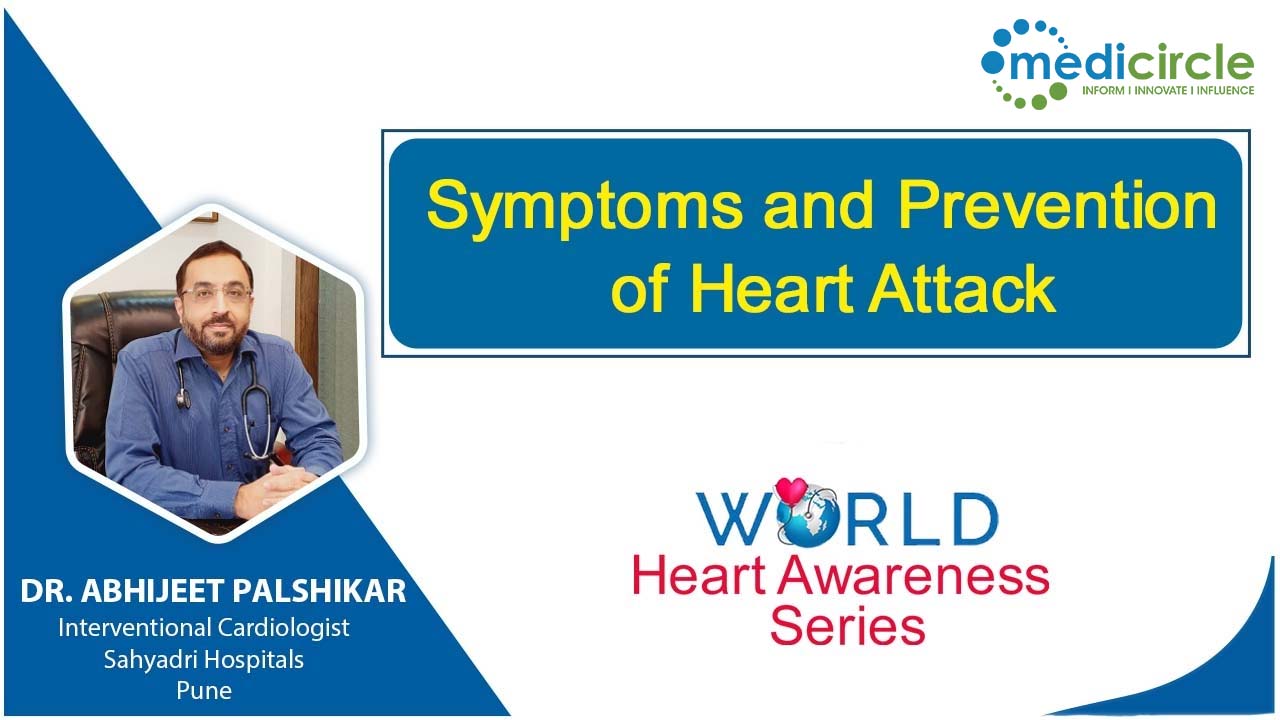The number of deaths due to heart attacks in India has remained consistently over 25,000 in the last four years, and over 28,000 in the last three years.
Dr. Abhijeet Palshikar is a renowned Interventional cardiologist in Pune and currently practicing at Sahyadri Hospital, Pune. For the past 15 years, he has worked as an Interventional cardiologist.
Know about Heart attack and its symptoms
Dr. Abhijeet Palshikar says, “Our heart is a muscular pump. It performs the functioning of blood pumping for the body. This heart pump itself needs some blood supply. We call this blood supply coronary arteries. When you get a blockage in the arteries which supply the heart, this is called a heart attack. This stops the blood supply to the heart. This leads to -
- Chest pain
- Breathlessness
- Sweating
These are symptoms of heart attack and this is due to lack of blood supply to the heart.”
Difference between a heart attack and a cardiac arrest
Dr. Abhijeet Palshikar informs, “Heart attack is just a lack of supply to the heart, but your heart is beating all the time with symptoms of chest pain, breathlessness, and sweating.”
He further explains, “Cardiac arrest occurs when the heart actually stops beating. “Arrest” means it is not beating. Heart attack can be followed by cardiac arrest but cardiac arrest can be due to other reasons as well. So, a heart attack is due to lack of blood supply and when the heart comes to a standstill, it is called cardiac arrest.”
Symptoms of a heart attack
Dr. Abhijeet Palshikar states, “The symptoms of heart attack are as follows-
-
Chest pain on the left side of the chest which radiates to the left arm and left side of the back
-
Breathlessness
-
Sweating
-
Giddiness
-
Unconsciousness
-
Unstable angina - which causes chest pain on exertion like running, walking, and climbing stairs.”
Immediate steps that can be taken by a dependent if one is suffering from a sudden heart attack
Dr. Abhijeet Palshikar informs, “The immediate steps during a heart attack are as follows-
- The patient should take a comfortable position preferably lying down position
- Stop exertion such as climbing stairs
- First medical aid - Disprin to be chewed in the mouth and swallowed in the mouth which works as a blood thinner
- Call the hospital for an emergency ambulance
- Carry a patient on a chair by hand. Do not allow the patient to exert
Ways to prevent a heart attack
Dr. Abhijeet Palshikar states, “The ways to prevent heart attack which causes increased mortality is -
- Lifestyle changes- reduced stress
- Exercise to keep fit
- Avoid junk food
- Avoid addiction
- Promote healthy life
Rapid Fire
- Can a sleeping position help to avoid a heart attack? Dr. Abhijeet Palshikar says, “No, a heart attack is not related to sleeping position.”
- Does heart disease affect men primarily? Dr. Abhijeet Palshikar informs, “Men are predominantly affected whereas females are protected up to menopause. However, after menopause, males and females are equally affected by a heart attacks.
- Should people avoid exercise if they have heart-related issues? Dr. Abhijeet Palshikar says, “It is important to consult your cardiologist and evaluate the pumping of the heart with ECHO. If the cardiologist permits you should exercise to keep fit.”
Edited By: Dr.Rati Parwani
Contributed By: Dr. Abhijeet Palshikar, Interventional cardiologist, Sahayadri Hospital

 Heart attack is on the high rise these days especially seen in celebs and young people. Medicircle aims to bring about awareness about heart attacks. Dr. Abhijeet Palshikar gives valuable insights on how to recognize a heart attack and ways to prevent it.
Heart attack is on the high rise these days especially seen in celebs and young people. Medicircle aims to bring about awareness about heart attacks. Dr. Abhijeet Palshikar gives valuable insights on how to recognize a heart attack and ways to prevent it. 









.jpeg)




.jpeg)

.jpg)













